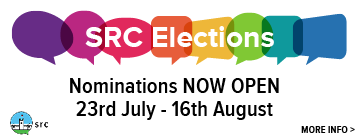The land on which I write this is stolen Gadigal Land. It is not a coincidence that this land, which has provided refuge and joy for me and my family, was stolen by the same colonial system – the British – which caused my family to flee ours.
I pay homage and respect to the Gadigal warriors, and I also pay respect to the Dharawal, Bidjigal and Dharug peoples whose lands I have worked, lived and organised on, and I pay respect to all First Nations peoples in the crowd today. They are my brothers, sisters, siblings, and cousins – and I am honoured to fight this fight alongside them.
This land always was and always will be, Aboriginal land.
My land is Palestine.
My home lies between the Jordanian River and the Mediterranean sea.
But Palestine has been plagued by colonialism, imperialism and supremacy. Let us get one thing straight – Israel is a racist, settler-colonial expansionist project, and no amount of greenwashing, pinkwashing, any colour-washing will ever be able to hide that.
When I hear of the issues which pervade the First Nations communities of so-called Australia, my heart aches in knowing that we are all fighting the same fight – struggling the same struggle. Since October last year, more than 34,000 Palestinians have been martyred. This is the biggest flare up of violence since the second intifada, more than twenty years ago. But the violence is not just the subjugation and genocide of my people. It’s an ongoing anti-colonial resistance, a bold refusal to accept the ongoing colonisation of our lands and we are proud of our warriors back home who continue to fight this fight.
When I speak with my grandparents in Palestine I am reminded of our relationship with our land. We are أصدقاء الأرض ‘asdiqa’ al’ard (“friends of the land”). I was born in Falastin – in a small agricultural town where, for as far back as I can trace my lineage, my family, on both sides, have come from the same small town. The earth in this town; the soil is nourished from my ancestors’ bones and those trees are my ancestors’ trees. Those birds sing the same songs that my great great great grandparents listened to while they harvested olives.
This is a relationship that colonisers will never understand. This is why, for them, uprooting trees and paving roads over culturally significant land – this does not hurt or break their hearts like it does ours. Their relationship with land is transactional and extractional – “how much money will it bring us?” and “how can we assert our domination on this part of the Earth?”
As the ongoing colonisation of my land, Palestine, continues, I am reminded and humbled to remember that on this land I am a guest. I am Indigenous there, but I am a settler here. I am also honoured to play the small part of solidarity and anti-colonial resistance here on Gadigal Land, where for hundreds of years the First Peoples on this continent fought the ongoing colonial project. I am inspired by my Blak brothers, sisters and siblings who have never given up the fight for sovereignty, land rights, against police brutality and for true Indigenous liberation. While we are solidarised by our experience with the settler-colonial project and the devastation, theft and violence it has inflicted upon our peoples, so too do we find comfort, motivation and the strength to continue our struggle across generations.
One thing I have learned in the Blak-Palestinian solidarity space is that we really and truly share one struggle and one fight. We fight for land, we fight for rights and we fight for dignity and sovereignty. They fight for money, for power and to assert domination over the region.
It is for these reasons that we, the Palestinian activist community, stand behind our First Nations siblings in our collective fight for liberation and land rights. None of us are free until all of us are free, and my freedom means nothing without your freedom.
From the river to the sea, always was always will be.






